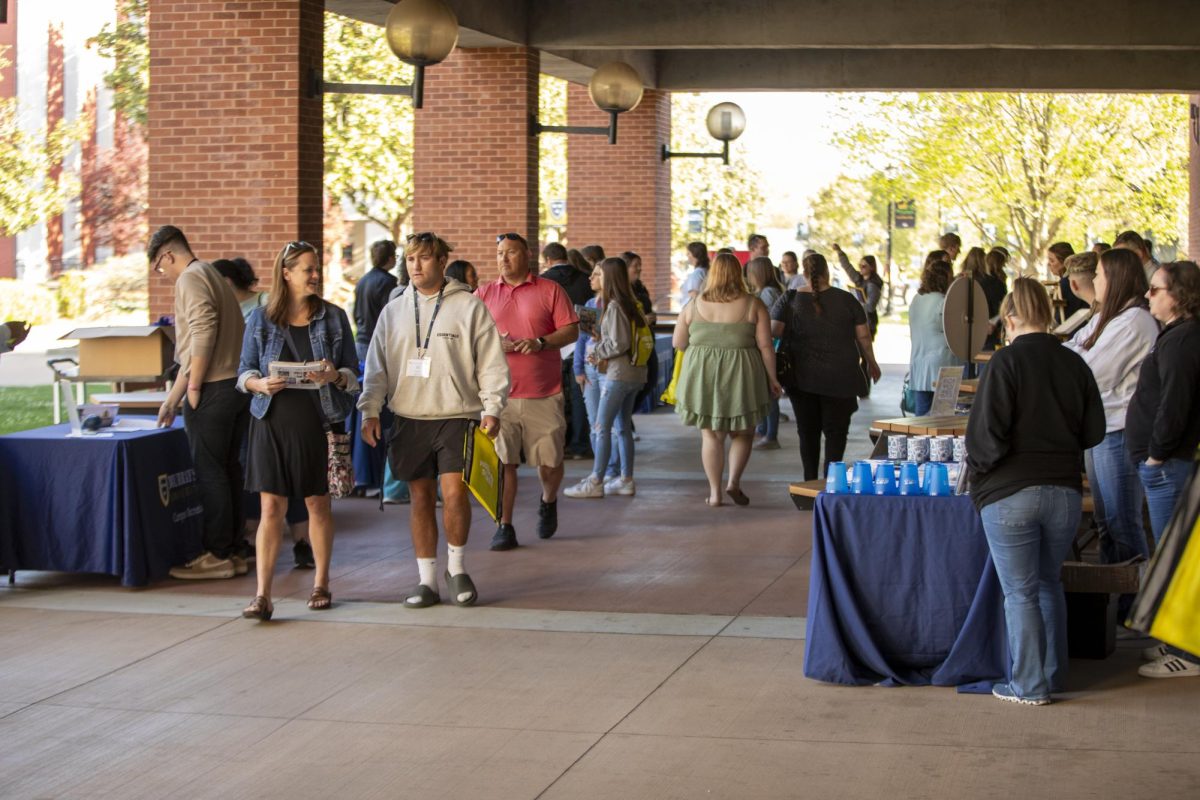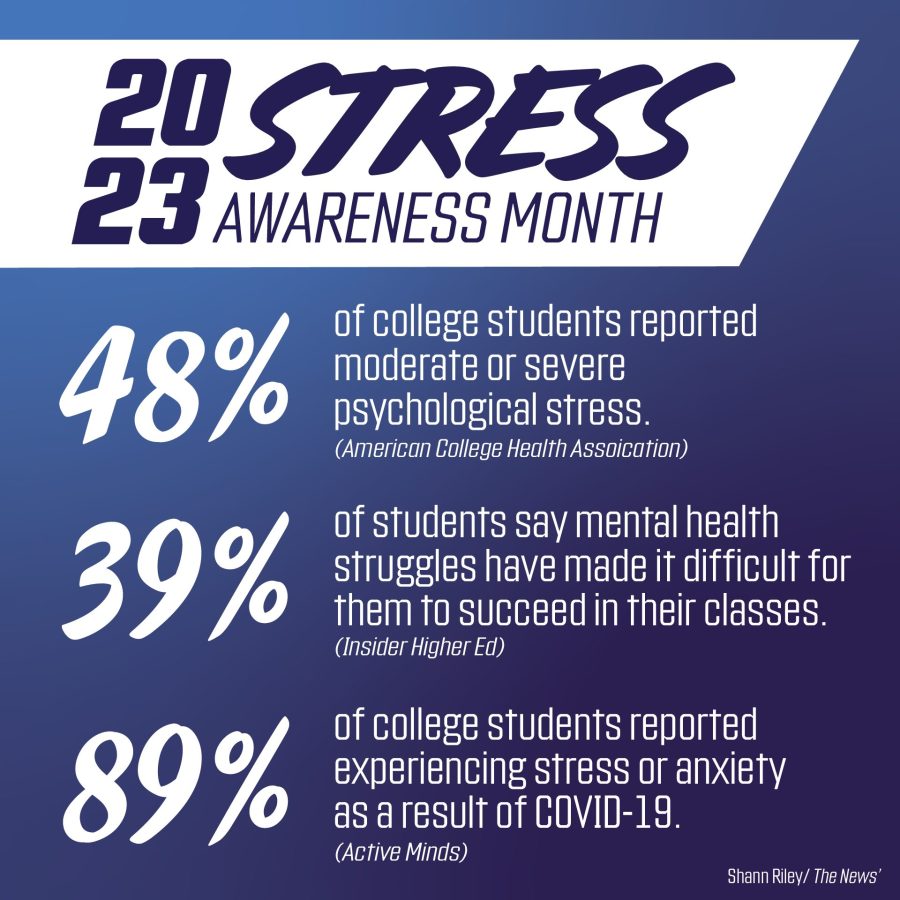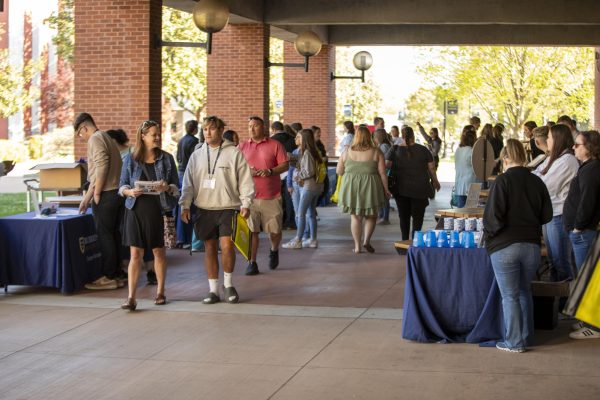Report shows student stress level hike
National Stress Awareness month is an opportunity to focus on ways to handle stress. (Shann Riley/ The News)
April 13, 2023
As the Counseling Center notices more students reporting they are stressed, University organizations and leaders are working to ensure students know how to cope with their stress.
April is recognized as National Stress Awareness Month, aiming to highlight the negative impacts of stress.
There are three different types of stress: acute, episodic and chronic, according to the American Institute of Stress.
As a way to promote April as Stress Awareness Month, Active Minds has shared tips on coping with stress on their Instagram page. These tips encourage students to engage in deep breathing techniques, exercise, good sleeping habits, setting boundaries and celebrating small victories.
“We all experience stress, and it’s not easy,” an Active Minds’ post read. “There are many aspects of life that cause stress, and though we can’t control them all, we can try our best to support ourselves through stressful times.”
Counseling Center Director Angie Trzepacz said she has seen an increase in students reporting cases of stress and encourages students to use coping strategies.
“Some of the easiest things to help with stress are learning time management techniques, because many people are not good at time management, but if they have some techniques that work for them, that can relieve their stress,” Trzepacz said.
Trzepacz said stress can cause students to feel buried under their responsibilities.
“People get overwhelmed with all of their responsibilities and commitments and feel like they are not prepared for them, they can’t handle them and don’t have time for them,” Trzepacz said. “They feel stress about the things that they’re supposed to do and whether or not they’re able to do those things.
About 49.3% of college students feel moderately stressed.
“College students’ stress statistics…show that almost half of the students in the U.S. are experiencing moderate stress,” according to the American College Health Association. “Moreover, nearly a third, 29.5 percent, endure high stress, while 19.7 percent report low stress levels.”
Their study found some of the leading causes of stress among college students are financial related.
On campus, the Racers Helping Racers food pantry and the Women’s Center are working to alleviate financial stress students face each semester.
Located in Blackburn Science Building Room 244, students can fill out a confidential form to let the office know what items students are needing. After the form is complete, students can grab a grocery bag and “shop” for necessities.
The Women’s Center has the Bra Closet and period products available to students in need. Items are donated by student organizations, including sororities and the Residential College Association.
Stress can affect a person’s mind and body.
“A little bit of stress is good and can help us perform daily activities, [but] too much stress can cause physical and mental health problems,” according to the World Health Organization website. “Learning how to cope with stress can help us feel less overwhelmed and support our mental and physical well-being.”
Trzepacz said stress can be different depending on the person and the severity of stress they are experiencing.
“Somebody who is mildly stressed might have their regular schedule of the week, but they have one paper that they’re stressed about,” Trzepacz said. “Somebody who is severely stressed might be thinking about all of their [responsibilities] and thinking about when [they’re] going to do them.”
Trzepacz said it is important for students to identify coping strategies.
She encourages students to develop a list of hobbies and interests. This list can provide students with options on ways they can calm down during a stressful situation.
To schedule an appointment with University Counseling Services, email [email protected].















































































































